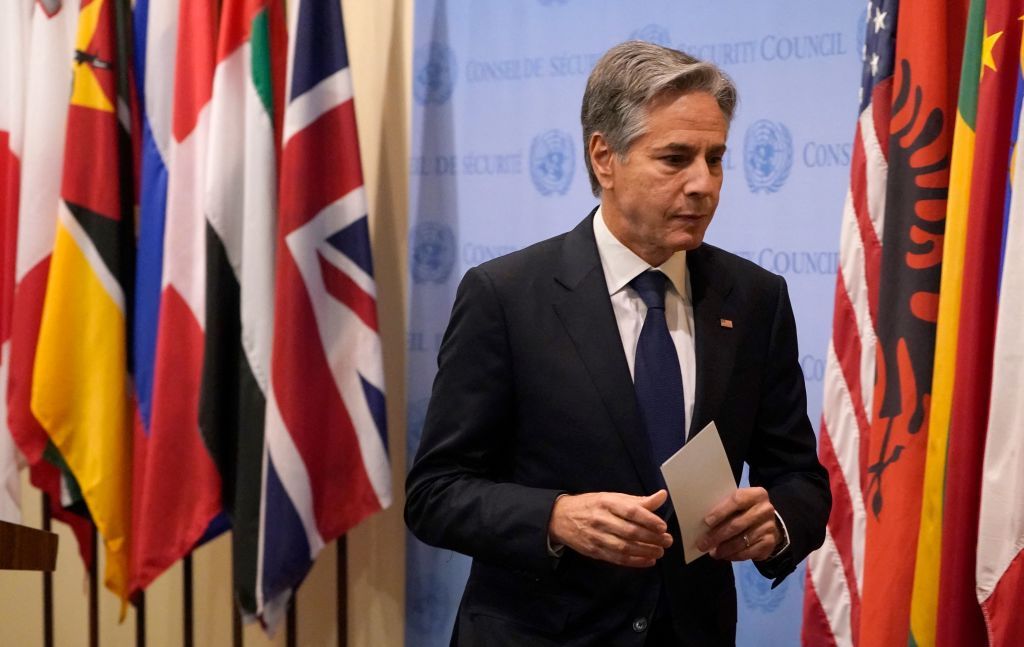Minister: Three more cargo vessels using temporary Black Sea corridor.
Another three cargo vessels that have agreed to use the Black Sea temporary corridor set up after Russia's withdrawal from the grain deal are moving towards Ukraine's ports, Infrastructure Minister Oleksandr Kubrakov reported on Sept.
22. After loading over 127,000 metric tons of Ukrainian agricultural products and iron ore, the bulk carriers will leave for China, Egypt, and Spain, according to Kubrakov. Earlier, the Palau-flagged Resilient Africa and Aroyat became the first vessels to use the route established by Ukraine's Navy to allow safe passage of ships amid Russia-declared blockade.
The Aroyat, carrying 17,600 metric tons of agricultural products, left Ukraine's port of Chornomorsk for Egypt on Sept.
22, said Kubrakov. The Resilient Africa, loaded with 3,000 metric tons of Ukrainian grain for African and Asian countries, arrived at the Bosphorus on Sept.
21, Reuters reported.
Blinken: Russia's war in Ukraine is 'assault on global food system' U.S.
Secretary of State Antony Blinken criticized Moscow for withdrawing from the Black Sea Grain Initiative, emphasizing that "hunger must not be weaponized."

Following Russia's unilateral termination of the Black Sea Grain Initiative, Ukraine's navy announced a new temporary corridor for civilian ships on Aug.
10. The route was primarily meant to allow passage for ships stuck in the Ukrainian ports of Chornomorsk, Odesa, and Pivdennyi since the start of the full-scale invasion. As of Sept.
16, five vessels have been evacuated through the temporary corridor, Kubrakov reported earlier.
Ukraine ready to take neighbors to court as continued grain bans threaten exports Kyiv may be gearing up for a legal battle with three of its neighbors as it now fights to free its grain on its western borders. In defiance of the European Commission's Sept.
15 decision to lift an embargo on the domestic sale of Ukrainian agricultural products in five

Russia withdrew from the Black Sea Grain Initiative in mid-July after repeated threats to do so and has since been targeting Ukraine's agricultural infrastructure, ports, and grain stockpiles. Brokered by Turkey and the U.N. in July 2022, the grain deal was originally meant to guarantee the safe passage of ships transporting Ukraine's agricultural exports from the Black Sea during the invasion.